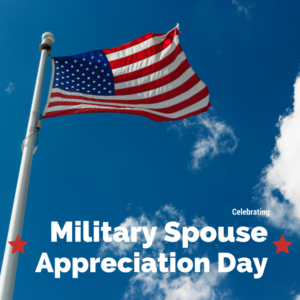The following post was authored by Jamie Boyle, Assistant Editor of the Military Service Employment Journal (MSEJ), and is being shared with permission from our partner, Military Spouse Corporate Career Network (MSCCN). This article was featured in the April 2016 issue of MSEJ.
In a recent article in our Military Service Employment Journal (MSEJ), Chris Pape, Founder of Macho Spouse and an Active Duty Military Spouse, explains the difficulties of being a professional and a military spouse:
“As a military spouse I’ve faced many employment challenges, but easily the most prominent has been finding meaningful work within my career field after every few years. People often ask if deployments have been the hardest part of being married to the military, and I always say, ‘no.’ … Gaining quality employment is one of the most stressful, gut-wrenching experiences any career-minded person faces. As a military spouse who PCS’s every few years, I get to live this horror often. I would then say that keeping my career on a positive, upwardly moving trajectory has been the second most difficult task as a military spouse. Once I find work, it’s a race to gain the respect and trust from co-workers, while accomplishing as much as possible before having to quit and move on.”
Chris isn’t alone. A Military Officers Association of American (MOAA) and Institute for Veterans and Military Families (IVMF) study reported that military spouses are 30 percent more likely to be unemployed than their civilian counterparts and earn 38% less. According to the same study, 90 percent of female spouses who work are underemployed, either working part instead of full-time or working in positions for which they are overqualified.1
But it doesn’t have to be that way. There is good news, I promise!

Being a military spouse requires that one learn to go with the flow…to bend so as not to break. When we can’t find jobs that align with our career goals, we translate our skills and transition ourselves into new professions. Military spouses are flexible.
I can’t speak for every military spouse I know, but I believe that on the whole, we go all in. Being married to a man or woman who wears a uniform isn’t always the easiest, but we invest heavily in that relationship and the service for which our partner signed up. Military spouses are committed.
With that said, this lifestyle isn’t for the faint of heart. Despite the employment odds against military spouses, the numbers of applicants coming to MSCCN for assistance tell us that military spouses aren’t giving up on their employment goals. Military spouses are resilient.
Educated, flexible, committed, and resilient.
If these are qualities your organization values in its employees, then consider tapping into the military spouse community. MSCCN can help you identify military spouses who possess the skills and experience your company needs.
This Military Spouse Appreciation Day, give a military spouse the opportunity to build a career with your company.

1. Rosalinda Maury, M.S. and Brice Stone, Ph.D. (2014). 2014 Military Spouse Employment Report. Institute for Veterans and Military Families, under contract with Military Officers Association of America


You can learn more about the amazing Chris Pape and his organization Macho Spouse at malemilspouse.com/